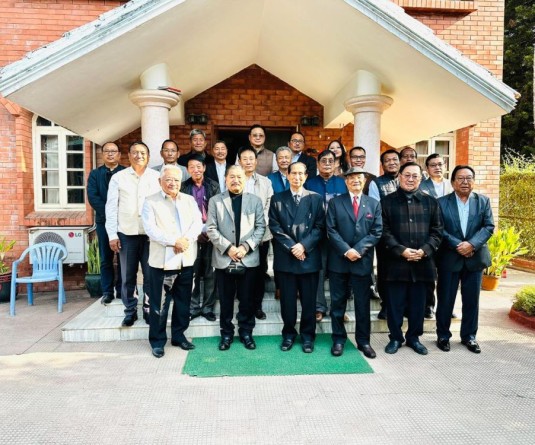
Longrangty Longchar
Dimapur | August 3
The unemployment problem in the state has made most of the youths look for other avenues, especially self-employment; however, the dearth of funds compounded by the lack of proper financial lending institutions and also the reluctance of banking institutions to provide due to the non recovery of loans have so far become a stumbling block for many promising first generation Naga entrepreneurs.
However, foreseeing all these hurdles that might come in the way of the promising youths in the country in their venture to set up their own enterprises, the government of India has established the Credit Guarantee Fund Scheme for Small Industries (CGFSI), on August 1, 2007, said T Chuba Jamir, Chairman of Socio-Economic and Ecological Awareness Forum, a Forum formed in the year 2000, which is aimed at trying and uplifting the socio-economic status of the people.
“The pundits of Indian Government institution had foreseen this kind of anomalies so they formulated this (CGFT) kind of scheme,” said Jamir.
Chuba Jamir, speaking at his residence in Nepali Bosti on August 2, disclosed that the CGFT was made by the Government of India, since the banks wanted collateral security for any loan that they extend to the borrowers. This collateral security demanded by the banks have discouraged and rendered many people from availing the loans from banks, said Jamir.
Jamir said that the Reserve Bank of India has identified that there are many ‘money’ in the different banks of the country which have been left by rich people who expired without leaving a heir to their fortune. So the RBI decided to set up a corpus fund of Rs 500 crores, which will act as the collateral security to the money lending institutions. CGTSI guarantees upto 75% of the credit risk subject to loan cap of Rs. 25 lakh and guarantee cap of Rs. 18.75 lakh per borrower.
Presently thirty five banks are covered under this scheme; prominent ones are State Bank of India, UTI Bank, Allahabad Bank, ICICI Bank, Viajaya Bank and Bank of Baroda.
“Excepting North East and Jammu and Kashmir, all the states in India have taken advantage of this CGFT scheme,” said Jamir. The most likely reason why the banks are refusing to implement this scheme is that banks are apprehensive that the CGFT scheme would also become a big failure due to the non return of loans, said Jamir. Besides the Non-performing Assets (NPA) of Banks in Nagaland is higher than the national average, said Jamir. Non Performing Asset, in banking terminology, (also called non-performing loans), means an asset or account of borrower, which has been classified by a bank or financial institution as sub-standard, doubtful or loss asset, in accordance with the directions or guidelines relating to asset classification issued by RBI
“But at the same time, among all the north eastern states, Nagaland stands as second state in term in return of loans, from point of view, banks should come forward and implement this CGFT scheme where collateral security is not required,” said Jamir.
Jamir held that since the Government of India has very considerately instituted the DoNER Ministry to look after the development of the North East and also adopted the Look East Policy, the Centre should also give some guidelines for the implementation of this Scheme, which can go a long way in solving the unemployment problem that has been plaguing the region especially Nagaland.
Despite his exasperation for non implementation of the scheme, the Chairman of the SEEAF, Chuba Jamir expressed no hard feeling against the banking institutions in the state.
“We ourselves are to be blamed in one way,” said Jamir. He said giving of loans to the people solely lies at the discretion of the bank managers. He said that the non repayment of loans to the banks discourages the banking institutions to give out loans.
“Bank managers are scared, nobody pays the loans, you know why NEDFI failed, NEFDI was a big failure because there was no return of loans,” said Jamir, and added that the bank are there to earn some profit, since they are not some charitable organisations.
In this regard, Jamir wished that the first generation prospecting Naga entrepreneurs not to follow the foot steps of their elders but instead return the loans they have taken.
“If only the new generation entrepreneurs are honest, determined and innovative, then the government or the financial institutions are there to help them,” he said.
Morung Express News





